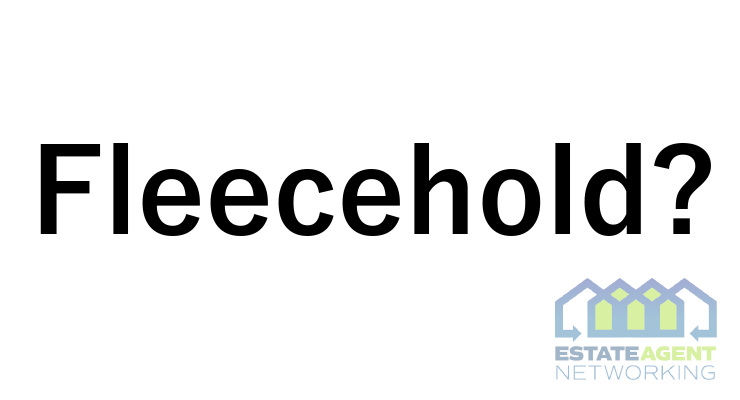What does the term ‘Fleecehold’ mean?
Though a word that have been around and discussed, usually with concern, fairly often we are now seeing a new trend of property appearing with the word ‘Fleecehold’ in the legal paperwork.
So, what exactly does Fleecehold mean?
Typically when you are purchasing a property it will be either leasehold or freehold. Leasehold means you do not own the land the property sits on (be in house or flat) and you are charged an annual fee for the land. Freehold means that you own the property and the land it is on and you have no ongoing fees to pay.
There are about four forms of lease agreements such as a single net lease, double net lease, triple net lease, and ground lease that one can bind in a contract. Irrespective of all the lease would require you to pay some fees annually.
The verb to fleece: “obtain a great deal of money from (someone), typically by overcharging or swindling them.” source Lexico.com
Sometimes though there are alternatives and one is the Fleecehold agreement. This is when you a contract states that you have to pay annual fees (commonly referred to as ‘estate fees’) on the land you own, so though you might have the freehold agreement you are also obliged to pay a third party additional monthly / annual fees.
It is always important to read through contracts of any property purchase and it is even more important to study the sections that tell you what you are purchasing and if any third party elements are part of the purchase (ie leaseholds) then you need to know the full T&C’s including annual fees. Look out for additional / extra / attached notes on freehold that can even stretch out to telling you what restrictions you may have, examples in including what type of vehicle you can park on your front drive to whether or not you can ever be permitted to serve / sell alcohol from your property (these two examples are in our recent property purchase bytheway).









